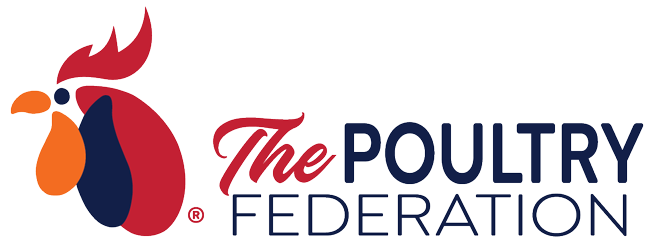The highly pathogenic avian influenza (HPAI) outbreak has become the largest animal health emergency in US history. As of February 2017, the USDA reports 233 detections (212 commercial facilities and 21 backyard flocks) affecting approximately 50 million birds in 22 states. To date, over $950 million federal dollars have been spent on disease control efforts and indemnities.
The infected birds have either died from the disease or been euthanized to control disease spread. Proper carcass management is vital for managing nutrients and controlling disease. Improper disposal may cause odor nuisance, spread disease, and the resulting leachate could negatively impact water sources. Mortality management options that were used during the recent HPAI outbreak include composting, burial, incineration, and landfilling. The most commonly implemented option was mass mortality composting. The purpose of mortality composting during the HPAI outbreak was to use biological heat treatment methods to degrade the carcass, inactivate the avian influenza virus, control odors and reduce fly exposure in a safe, biosecure, and environmentally sustainable manner.
As a result of the outbreak, a national composting technical team was formed by the USDA, and a mortality composting protocol for avian influenza infected flocks was published. This presentation will outline mortality management options during an animal disease outbreak and highlight the composting methodology implemented on poultry operations during the HPAI outbreak, as well as the successes, challenges and lessons learned. An application for continuing education credit for Certified Crop Advisors (CCAs) and members of the American Registry of Professional Animal Scientists (ARPAS) will be submitted.

Dr. Josh Payne received a B.S. in Agriculture from Arkansas State University; a M.S. in Poultry Science from the University of Arkansas and a Ph.D. in Poultry and Animal Science from North Carolina State University. Previously, he served as the Extension Animal Waste Management Specialist and later State Extension Poultry Specialist at Oklahoma State University.
Dr. Payne’s research and extension activities focused on pathogen control, animal mortality management, soil fertility, nutrient management and water quality as they relate to agricultural productivity and environmental quality. He has also directed mass mortality composting efforts on 24 avian influenza affected farms and has given multiple presentations to industry, state agency and federal agency representatives regarding his experiences. Dr. Payne currently serves as the Technical Services Manager for the Jones Hamilton Company Ag Division working closely with the poultry industry on poultry litter management issues. Email:
How Do I Participate?
On the day of the webcast, go to www.extension.org/58813 to download the speaker’s power point presentations and connect to the virtual meeting room. First time viewers should also follow the steps at: www.extension.org/8924.
For More Information
- Previous webinar on mortality options during an AI outbreak: http://articles.extension.org/73246
- USDA-APHIS on Avian Influenza: https://www.aphis.usda.gov/aphis/ourfocus/animalhealth/animal-disease-information/avian-influenza-disease
The LPE Learning Center is a project dedicated to the vision that individuals involved in public policy issues, animal production, and delivery of technical services for confined animal systems should have on-demand access to the nation's best science-based resources. See our website at: lpelc.org.



































